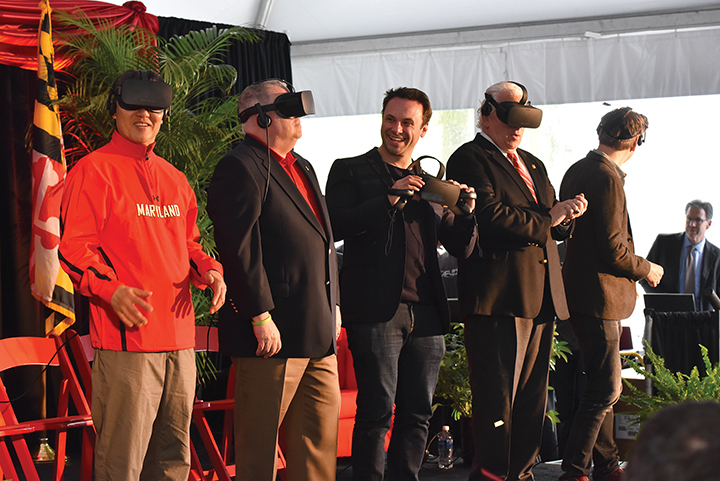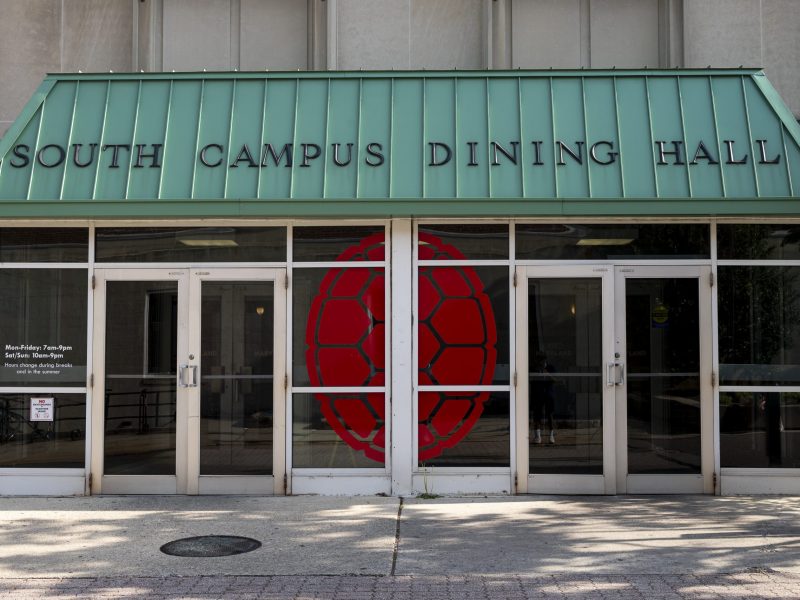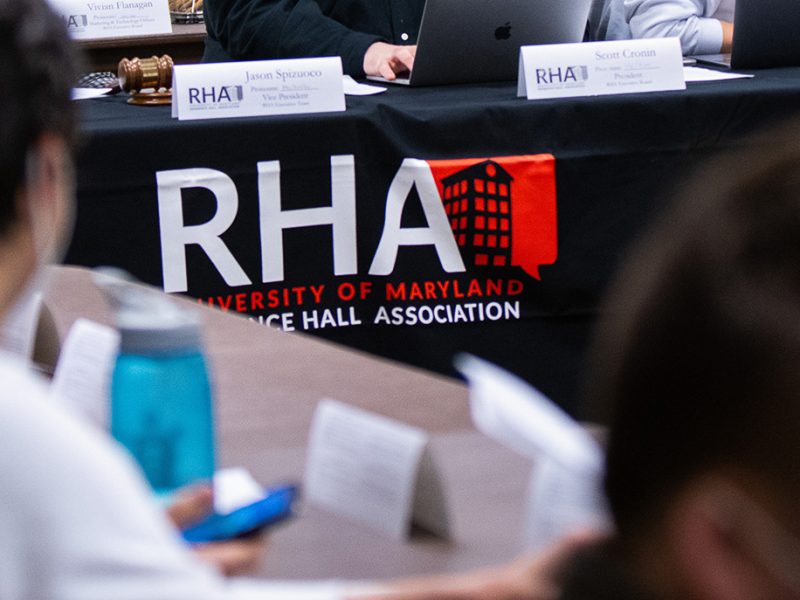A professor specializing in virtual reality technology has joined the University of Maryland faculty this month as the Reginald Allan Hahne Endowed E-Nnovate Professor in Computer Science.
The decision to bring Matthias Zwicker on board followed an “open search” to find the best person for the position, said Samir Khuller, a computer science professor and Elizabeth Stevinson Iribe Chair of Computer Science. The Maryland E-Nnovation Initiative Fund donated $1.05 million to create this professorship after matching a donation of Elizabeth Iribe — mother of Oculus VR co-founder and university alumnus Brendan Iribe — who gave $1.5 million in September 2015 to establish a separate Paul Chrisman Iribe Chair in Computer Science Endowed E-Nnovate Professorship.
Zwicker, who is coming to this university from the University of Bern in Switzerland, said the funds from the endowment allow him to organize conferences and buy VR equipment for this university. He said he plans to begin teaching a graduate class in the fall on advanced computer graphics that will cover fundamentals required for virtual reality, such as rendering and 3-D tracking.
[Read More: UMD students experienced the dangers of texting and driving through virtual reality]
As an endowed professor, Zwicker is also responsible for spending at least one day a week working on activities outside of traditional professor duties, Khuller said. Zwicker said he has decided to work with VisiSonics, a startup company founded by university faculty that works on audio rendering to be used in virtual reality. Audio rendering “is producing sound that gives you the impression of being in the actual space that you also see,” he noted.
“This startup has the technology to do sound rendering … that’s very interesting to me too, because I’m on the visual side, on the image generation side, but they use quite similar technology,” Zwicker said.
Joining the university in the middle of the semester has made it harder for him to start his research with graduate students on the campus, he said, since there are no students from the fall semester waiting to work with him.
“What will be crucial for me is to recruit and attract graduate students who are interested by [virtual reality], and willing and committed to work on this, and that’s what I’m starting to work on now,” he said.
[Read More: This year’s Bitcamp sees more female participants, many virtual reality projects]
However, he said he does not expect recruiting and attracting people interested in virtual reality to be a difficult task, thanks to “a very strong environment that attracts Ph.D. students and undergraduates with relevant skills.”
Some students on the campus have taken an interest in VR and joined groups such as UMD Virtual Reality Club. The club provides resources for students to learn about and experiment with the technology, organization president Mikhail Sorokin said. The club’s lab, located in the A.V. Williams Building, has virtual reality headsets such as the Oculus and HTC Vive for members to use in their projects.
Founded in the fall, the club has already seen significant growth in membership, the junior computer science major said. Students interested in developing virtual reality hardware and software — along with students interested in the visual, artistic potential of virtual reality — are drawn to the club, he added.
“A big attraction to virtual reality is the ability to do things you might not be able to do in real life,” Sorokin said.
In addition to the undergraduate enthusiasm for virtual reality, the university itself has shown increased interest in the developing technology, Khuller said. Zwicker is now the second faculty member working in virtual reality, Khuller said, with computer science professor Amitabh Varshney being the other.
This university is seeking to bring that number to three by filling the Paul Chrisman Iribe Chair in Computer Science, he noted.
Professors such as Zwicker who are interested in virtual reality will have access to the new Brendan Iribe Center for Computer Science and Innovation, established with a $31 million donation from the Oculus cofounder. Khuller said the center is expected to open in 18 months, and will open up the opportunity for “new and exciting” research to professors and students alike.
“The real impact of this building will happen three years from now, when you see a large number of students coming out of the programs, very highly trained in new fields of research and with access to facilities we don’t have today,” he said.



